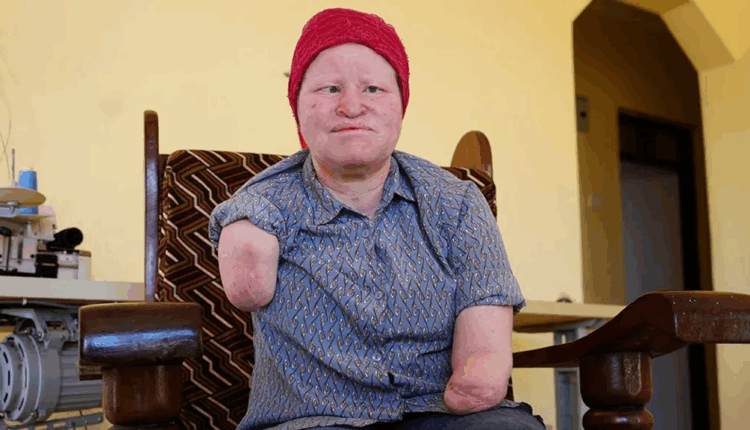Every election season in Tanzania brings new fear for 42-year-old Mariam Staford, a woman living with albinism. While others celebrate with campaign songs and rallies, Mariam feels only terror.
“The first thing that comes to me is fear. I know that killings of people with albinism happen especially at election time in Tanzania, when witchcraft beliefs intensify. That’s why I don’t take part in campaigns. I am so afraid,” she told the BBC.
Albinism is a rare genetic condition that reduces the skin’s pigment. About 30,000 people in Tanzania live with it. Sadly, many are attacked because of the false belief that their body parts bring wealth, luck, or political success. These superstitions often worsen before elections as people seek spiritual power.
Mariam knows this horror personally. In 2008, men armed with machetes broke into her home in Kagera, cut off both her hands, and stole them. She was five months pregnant at the time and lost her baby. “The doctor said I was already dead and should be buried,” she recalled. Against all odds, she survived.
Fearing for her life, she later moved to the Kilimanjaro region, where a rights group, Under the Same Sun, built her a house and trained her to knit sweaters. Still, the memories never fade. “Even now, I sometimes dream of that night,” Mariam said. “When I wake up, I touch my arms and remember they are not there.”
Since 2008, Tanzania has recorded 211 attacks on people with albinism , 79 killed and 100 mutilated. The government condemned the killings and introduced stricter laws and awareness campaigns. A monument in Sengerema now honours victims, including Mariam and five-year-old Mariamu Emmanuel, who was murdered in 2008.
Though attacks have decreased, they still happen. One incident was reported in June this year in Simuyu. President Samia Suluhu Hassan recently urged citizens to reject harmful beliefs, saying they have no place in modern Tanzania.
District officials and traditional healers are now working together to protect people with albinism. “We advised them to be good ambassadors and ensure they are safe,” said district commissioner Senyi Ngaga.
But the murder last year of two-year-old Asimwe Novath, abducted from her home in Kagera region, was a reminder that the issue has not gone away.
Witnesses said the toddler was taken by force by two unidentified men while she played with her mother.
Seventeen days later, parts of Asimwe’s body were found in a sack, discarded under a bridge in the same region. Her remains were later buried at her family home.
Nine suspects have been charged with premeditated murder in connection with the killing, but the case has not concluded.
Source: BBC


Comments are closed.